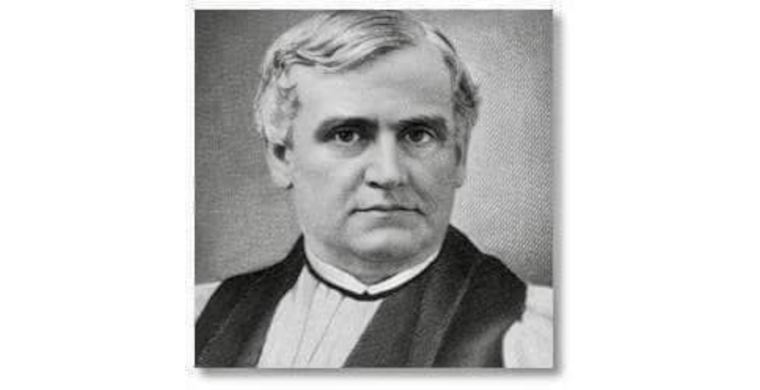PHILLIPS BROOKS -- Liberal Episcopal Churchman
By Chuck Collins
https://www.facebook.com/chuck.collins.sa
January 1, 2024
"O Little Town of Bethlehem" was sung for the first time on this day, December 27, 1868, by a children's choir in Holy Trinity Episcopal Church Rittenhouse Square (Philadelphia). PHILLIPS BROOKS was their rector who wrote the theologically-empty song after visiting the Holy Land.
One historian said that Phillips Brooks was "by all odds the most popular voice the Episcopal Church has ever had." He was everyone's pastor back in the day: a shy, towering, handsome 19th century Episcopal minister who briefly became the Bishop of Massachusetts before his untimely death in 1893. He wrote a popular book on preaching (Truth through Personality- Lyman Beecher Lectures).
Gillis J. Harp, in his terrific biography of Brooks (Brahmin Prophet: Phillips Brooks and the Path of Liberal Protestantism), shows how he helped guide the Episcopal Church into the liberal Protestant way of all mainline denominations. He helped move the church away from the centrality of the cross to focus mostly on the Incarnation - away from salvation by Christ alone to moral improvement.
Brooks' Broad Church convictions were based on a "sunnier determination of human nature" that refused to identify with either Reformation Anglicanism (based on historic Anglican formularies) or the Catholic revival of the 1830's. His was "a pallid Christian humanism," says R.R. Reno. His influence continues to this day to plow the way for all novel, progressive speculations that infect the church.
Considering the legacy of Phillips Brooks is a good reminder of how important it is to begin our understanding of God, our theology, with an accurate picture of human nature: with a biblical anthropology! Someone said that a biblical anthropology was the most important contribution of the 16th century Reformation. Depending on how we view humankind quite literally determines our view of God. Either we think we are basically good needing a little improvement that can be addressed with regular church attendance and some prayer thrown in, or we are sure that we are spiritually dead in our trespasses and sins and by nature children of wrath (Ephesians 2).
Either we need a coach to cheer us on, or a Savior to bring us from death to life. One leads us to a grandfatherly distant picture of God who occasionally shows up to clean our face with his dinner napkin.
This is a warning to the 19th century Oxford Movement and the succeeding Broad Church Movement: the church that stands for nothing will fall for anything. Either Holy Scripture is our primary authority as stated and upheld in the Articles of Religion, the 1662 Book of Common Prayer, and in the two books of Homilies, or this church becomes anything we need it to be to fit our preconceived notions and aesthetic preferences.














